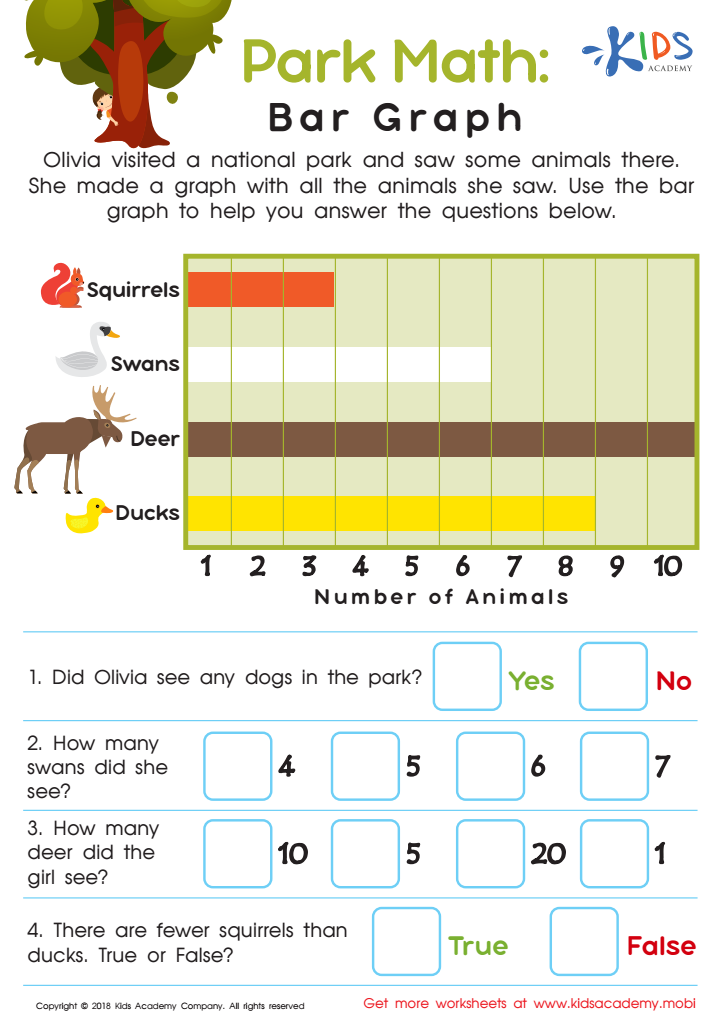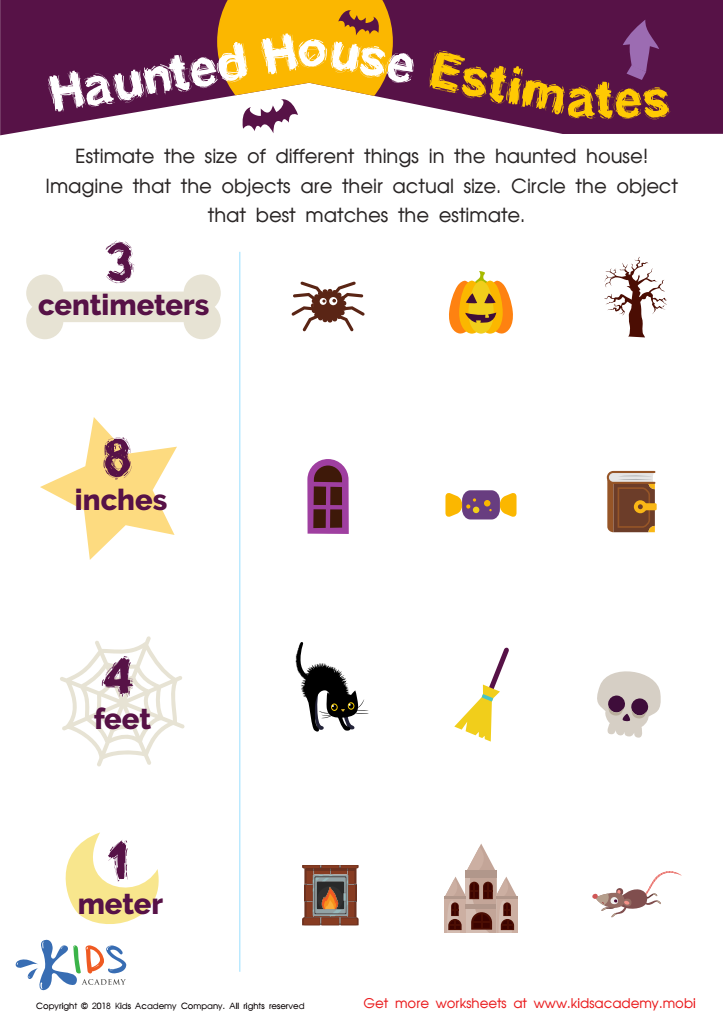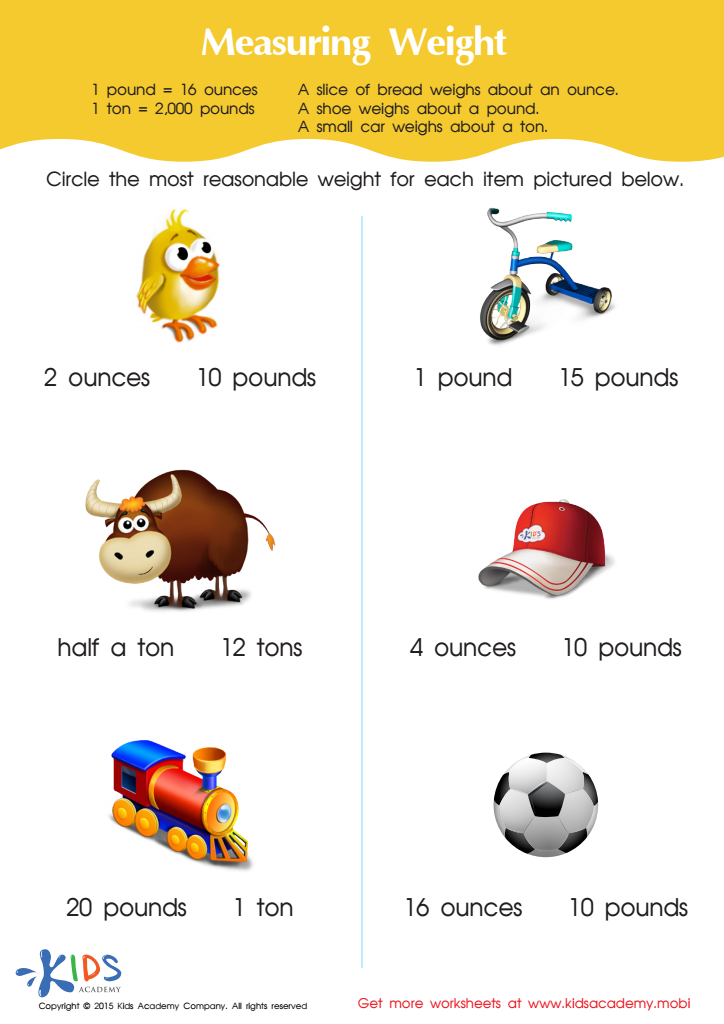Problem-solving abilities Measurement Worksheets for Ages 5-8
3 filtered results
-
From - To
Unlock your child's potential with our Problem-solving Abilities Measurement Worksheets crafted for ages 5-8. Designed to engage young minds, these worksheets enhance critical thinking and analytical skills through fun and relatable measurement challenges. Each activity encourages exploration and fosters an early love for math, promoting cognitive development. With a range of scenarios—from measuring everyday objects to solving real-life problems—children will gain confidence in their problem-solving abilities. Perfect for home or classroom use, our worksheets empower educators and parents alike to support their child's learning journey. Discover a world of measurement fun and watch your child thrive!


Park Math: Bar Graph Worksheet


Haunted House Estimates Worksheet


Measuring Weight in Ounces, Pounds and Tons (Part 2) Worksheet
Problem-solving abilities are crucial for children aged 5-8, as they form the foundation for critical thinking and adaptative skills throughout their lives. Parents and teachers should care about measuring these abilities because early experiences in problem-solving greatly influence cognitive development and academic success.
Assessing problem-solving skills helps identify individual strengths and areas needing improvement, allowing for tailored instruction that meets each child's needs. It fosters a growth mindset, encouraging children to view challenges as opportunities for learning rather than obstacles. This early measurement helps educators implement appropriate interventions, ensuring children grasp essential concepts before they fall behind.
Furthermore, strong problem-solving capabilities are linked to higher levels of creativity and innovation, traits that are increasingly valuable in our rapidly evolving world. By cultivating these abilities through targeted assessment and support, we equip children with essential life skills that extend beyond academics.
Ultimately, nurturing problem-solving skills in early childhood leads to better analytical abilities, emotional resilience, and team dynamics, preparing children for future success, both in school and in life. As such, parents and teachers should prioritize these measurements as integral components of a well-rounded education.
 Assign to My Students
Assign to My Students






















